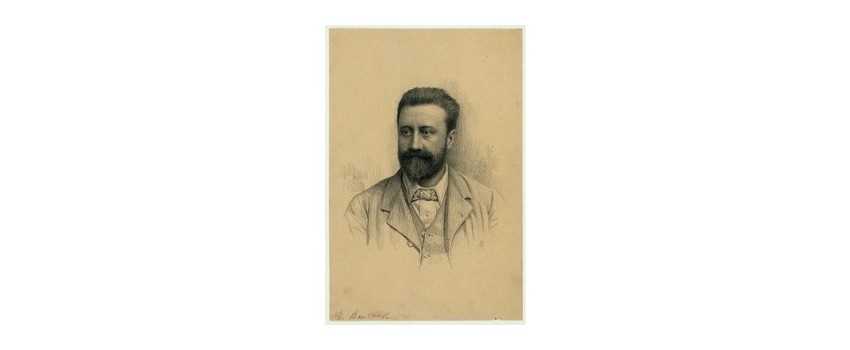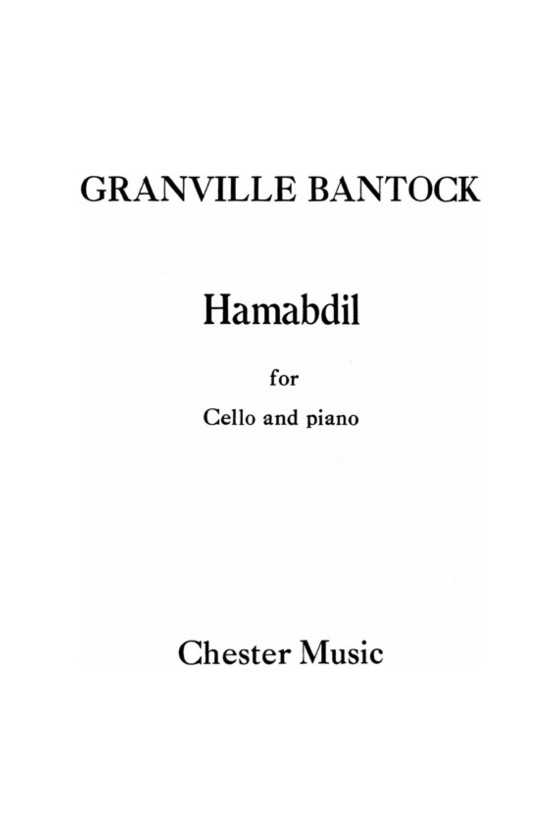Bantock, Granville
There is no doubting music's ability to pull us out of ourselves, into another world, and closer to people and cultures all around the world. British composer Granville Bantock had a better grasp on this than others. He devoted his whole life to music, and his legacy lives on via his recordings, which continue to move and enchant listeners decades after his death.
Early Life and Musical Education
Granville Bantock was born in London, England, on August 7, 1868. He was the son of a Scottish doctor and a mother of Italian descent. From an early age, Bantock showed a keen interest in music, and he began taking piano lessons when he was just six years old. His family moved to Birmingham when he was ten, and it was there that Bantock started to develop his musical talents more seriously. Bantock's formal musical education began at the Birmingham and Midland Institute School of Music, where he studied under the tutelage of Charles Swinnerton Heap. He later went on to look at the Royal Academy of Music in London, where he learned composition under the guidance of Frederick Corder. During this time, Bantock began to develop his unique style of composition, which would come to be characterized by its exoticism and use of non-Western musical elements.
Career as a Composer and Conductor
Bantock returned to Birmingham after finishing his time at the Royal Academy of Music to begin a successful career as a conductor and composer. As word spread about his prodigious musical abilities, he was soon named conductor of the City of Birmingham Orchestra. The Romantic tradition heavily influenced Bantock's early compositions, and he was particularly drawn to the music of Richard Wagner. However, as he developed his compositional voice, he began incorporating elements of non-Western music. He was particularly interested in the music of India and the Middle East, and he traveled extensively throughout these regions, collecting folk songs and studying local musical traditions.
Exploration of Bantock's Notable Works
One of Bantock's most notable works is "The Witch of Atlas," a symphonic poem based on a poem by Percy Bysshe Shelley. The piece is characterized by its use of exotic scales and harmonies, and it features a prominent role for the harp, which Bantock uses to create a dreamy, ethereal atmosphere. "The Witch of Atlas" is a prime example of Bantock's unique compositional style, blending Romantic elements with non-Western musical traditions. Another of Bantock's most famous works is the "Hebridean Symphony," which he composed in 1915. The rugged beauty of the Scottish Hebrides features themes and motifs reminiscent of traditional Scottish folk music that inspire the symphony. The piece is divided into four movements, each evoking a different aspect of the Hebridean landscape. The "Hebridean Symphony" is a powerful and evocative work, widely regarded as one of Bantock's most outstanding achievements.
Bantock's Lesser-known Works and Their Significance
While "The Witch of Atlas" and the "Hebridean Symphony" are undoubtedly two of Bantock's most famous works, he composed many others worth exploring. One such work is "Fifine at the Fair," a setting of a poem by Robert Browning. The piece is characterized by its exotic harmonies and rhythms and features a prominent role for the soprano soloist. Another lesser-known work is "The Sea Reivers," a suite of five pieces inspired by the seafaring traditions of the North East coast of England. Again, the piece is notable for its use of folk melodies and its evocative depictions of the sea and the rugged coastline. These lesser-known works are significant because they demonstrate the breadth and depth of Bantock's compositional output. They also highlight his commitment to exploring and incorporating new musical traditions into his works. By exploring these works, we can better appreciate Bantock's unique voice and lasting contributions to British music.
Legacy and Impact on British Music
Despite his many accomplishments as a composer and conductor, Bantock's legacy has been largely overlooked in recent years. Yet, he has influenced many modern composers, and his music inspires and enchants listeners. Bantock's legacy is particularly significant in the context of British music. He was instrumental in forming a uniquely British musical identity as one of the first British composers to include non-Western musical influences in his compositions. Moreover, his music helped bridge the gap between Western and non-Western musical traditions. It allowed a new generation of composers to discover and draw inspiration from the wide range of music from across the globe.
Conclusion
Granville Bantock was a true visionary and a pioneer of British music. His unique compositional style and tireless dedication to his craft inspire and captivate audiences today. Through his music, Bantock was able to bridge the gap between different cultures and musical traditions, and he helped to create a distinctly British musical identity that continues to evolve and grow to this day.


